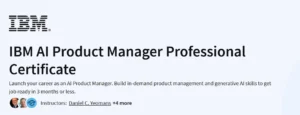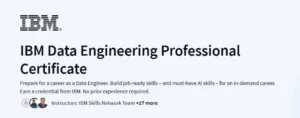What will you learn in Learn Intermediate Python 3 Course
- Master advanced function features: keyword args, unpacking operators, and deep function customization.
- Explore namespaces, scopes, and how Python resolves names under the hood.
- Boost readability and structure with advanced OOP: inheritance, abstraction, properties, and class design best practices.
- Write robust applications using unit testing with
unittest, including error handling coverage. - Dive into Python’s behind-the-scenes: iterators, generators, and context management for efficiency and elegance.
Program Overview
Module 1: Welcome to Intermediate Python 3
⏳ 20 minutes
Understand the course structure and how to navigate the interactive coding environment.
Review prerequisites and set expectations for skill development.
Module 2: Function Arguments
⏳ 1 hour
Use
*args,**kwargs, and argument unpacking for flexible function definitions.Learn default arguments, keyword-only parameters, and argument ordering rules.
Module 3: Namespaces & Scope
⏳ 1 hour
Explore Python’s LEGB rule and how variables are resolved in nested scopes.
Understand the difference between local, global, and nonlocal declarations.
Module 4: Functions Deep Dive
⏳ 1.5 hours
Use anonymous functions (
lambda),map(),filter(), andreduce()for functional programming.Implement decorators and closures to modify or enhance function behavior.
Module 5: Object-Oriented Programming
⏳ 2 hours
Design robust classes using encapsulation, inheritance, and polymorphism.
Utilize special methods like
__str__,__repr__, and class properties with@property.
Module 6: Unit Testing
⏳ 1.5 hours
Write and organize tests using Python’s
unittestmodule.Handle test failures, exceptions, and assertions for robust code verification.
Module 7: Iterators & Generators
⏳ 1.5 hours
Create and use iterators using the
__iter__and__next__methods.Define custom generators with
yieldfor memory-efficient looping.
Module 8: Specialized Collections & Context Managers
⏳ 1.5 hours
Work with Python’s built-in data structures like
set,deque, anddefaultdict.Use
withstatements and custom context managers to manage resources cleanly.
Get certificate
Job Outlook
- In high demand: Intermediate Python skills are essential for roles in backend, data, automation, testing, and developer tooling.
- Career-ready: Builds foundation for roles like Software Engineer, QA Engineer, Data Engineer, or DevOps Engineer.
- Skill expansion: Lays groundwork for learning frameworks (Django/Flask), data science, or scaling challenges.
- Freelance friendly: Enables building solid scripts and automation tools for businesses or clients.
Specification: Learn Intermediate Python 3
|





